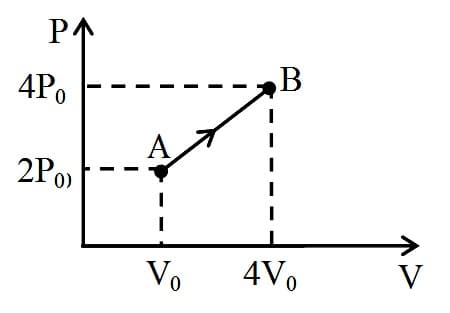Specific Heat Capacity of Gases
Specific Heat Capacity of Gases: Overview
This topic covers concepts such as Molar Specific Heat Capacity at Constant Volume, Molar Specific Heat Capacity at Constant Pressure, Mayer's Relation, Molar Specific Heat Capacities in Terms of Gas Constant, Heat Capacity of Solids, etc.
Important Questions on Specific Heat Capacity of Gases
At a given temperature, the specific heat of a gas at constant pressure is always greater than its specific heat at constant volume.
Define molar specific heat capacity at constant volume and pressure.
A container has 4.2 litres of water at . Heat required to boil water in is
The amount of heat required to raise the temperature of mass of water through is called its
Define heat capacity and write its unit.
A molecule of a gas has six degrees of freedom. Then, the molar specific heat of the gas at constant volume is
How much heat energy (in ) is necessary to raise the temperature of of water from to ?
Specific heat of an ideal gas at constant volume and at constant pressure are related to universal gas constant are as
How the change in specific heat of the water can be explained at low temperatures?
Which statement is false for specific heat of water?
For the next three questions
An ideal diatomic gas is expanded so that the amount of heat transferred to the gas is equal to the decrease in its internal energy.
The molar specific heat of the gas in this process is given by C whose value is
The energy in food is measured in _____. (Fahrenheit/ calorie/ Celsius/ metre)
Two mole of oxygen is mixed with eight mole of helium. The effective specific heat of the mixture at constant volume is _____.
Two moles of a certain gas at a temperature, are cooled isochorically so that the pressure of the gas gets reduced by times. Then, as a result of isobaric process, the gas is allowed to expand till its temperature gets back to the initial value. Find the total amount of heat absorbed by gas in this process.
Which of the following is correct for a gas with, and .
(Take, .)
Find the specific heat of a mixture of two moles of and eight moles of at constant volume:
An ice cube of mass at is placed in an isolated container which is at . The specific heat of the container varies with temperature according to the empirical relation , where and . If the final temperature of the container is , determine the mass of the container.
(Latent heat of fusion for water specific heat of water )
The specific heat of helium at constant volume is 12.6 . The specific heat of helium at constant pressure in is about (Assume the temperature of the gas is moderate, universal gas constant, )
A thermally insulated piece of metal is heated under atmosphere by an electric current so that it receives electric energy at a constant power P. This leads to an increase of the absolute temperature T of the metal with time t as follows
Then the heat capacity is
One mole of a monoatomic ideal gas undergoes the process, as in the given diagram. The specific heat for this process is

